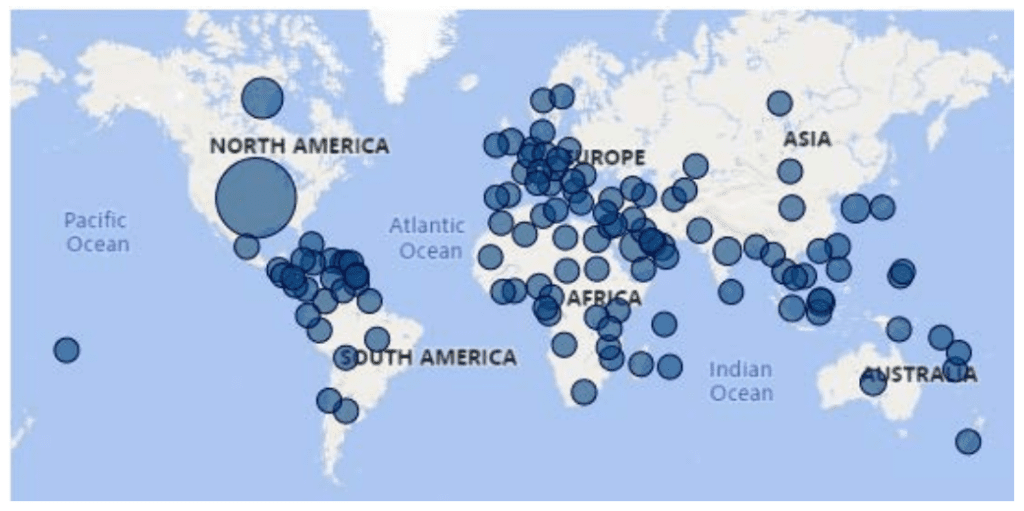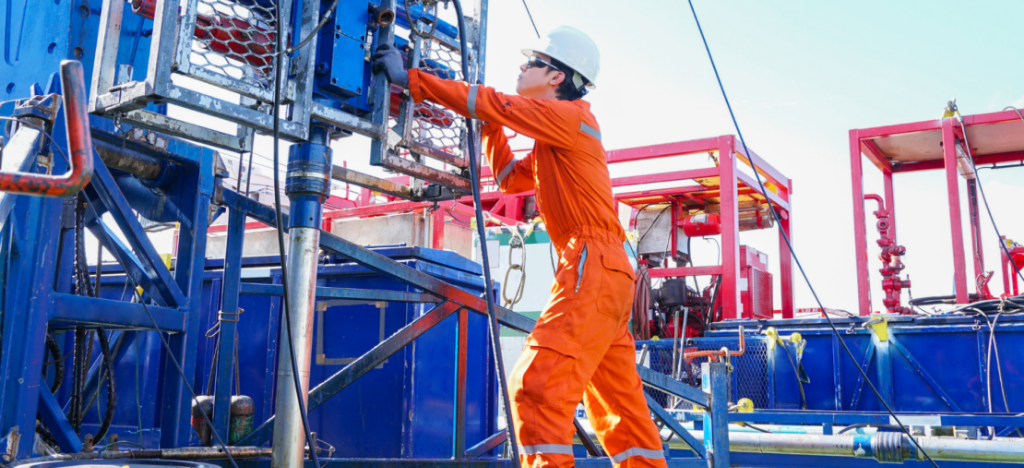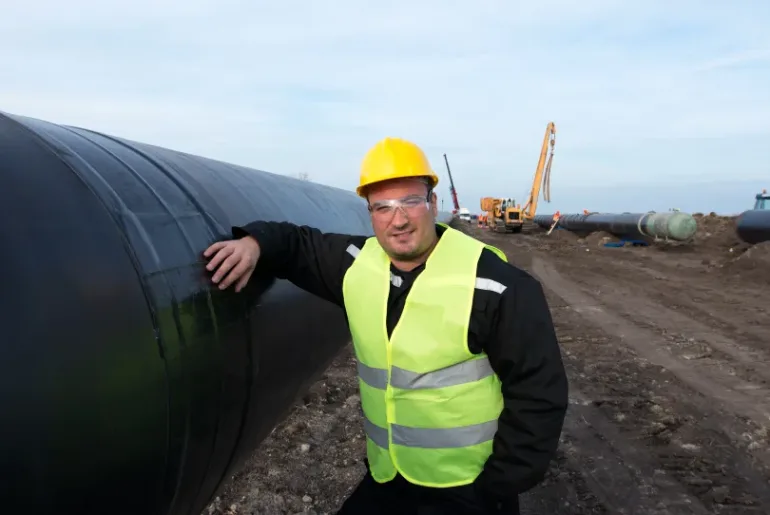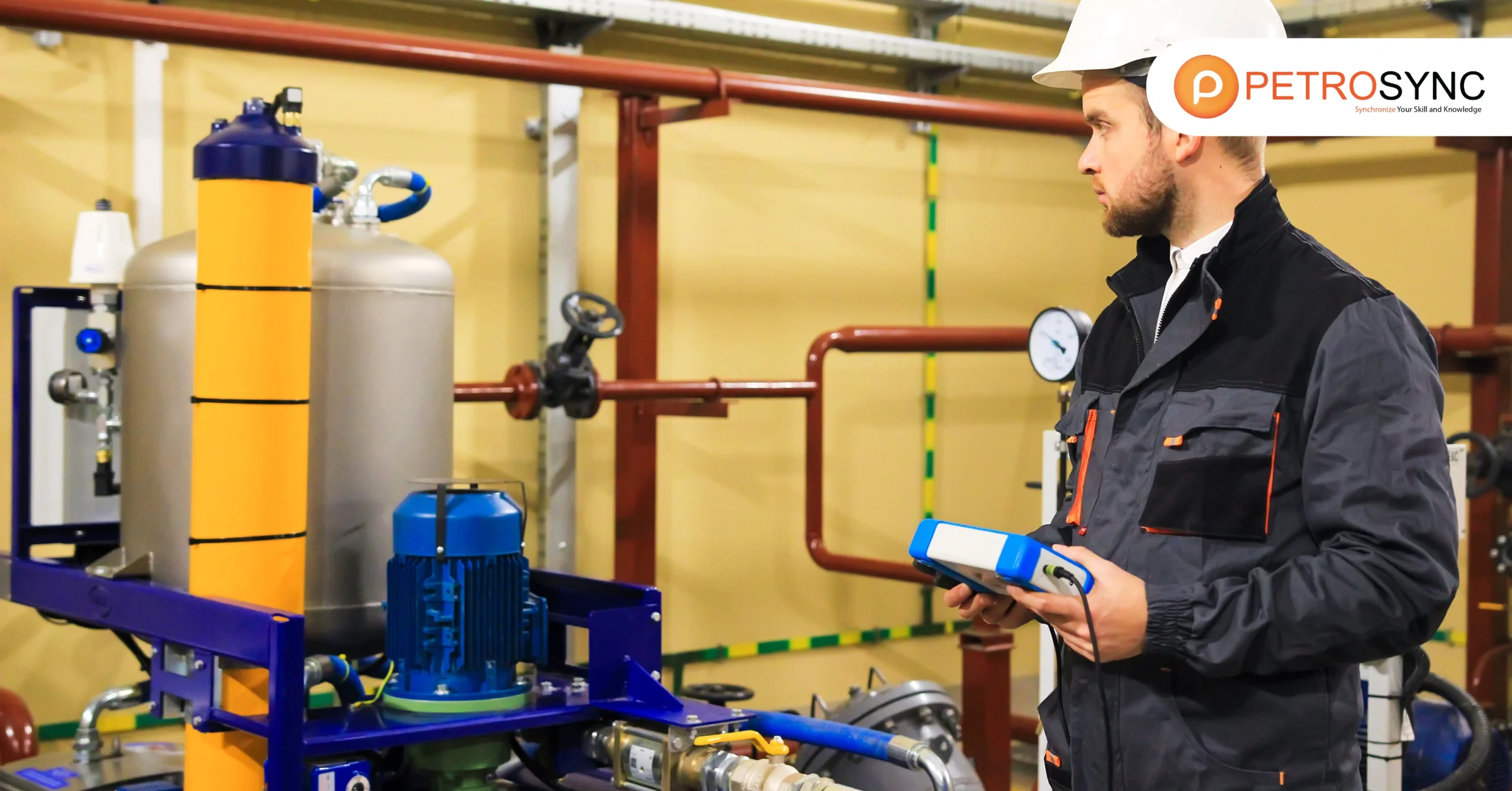In the oil and gas industry, API inspectors play a critical role in ensuring compliance with industry standards. They are responsible for conducting inspections, audits, and assessments of facilities, equipment, and processes to guarantee adherence to API guidelines. This article provides a comprehensive overview of the API inspector job description, including their responsibilities, required certifications, and the work environment they operate in.
What Do API Inspectors Do?
API inspectors, also known as American Petroleum Institute inspectors, are experts with comprehensive understanding of industry inspection codes and standards. They are responsible for ensuring that the oil and gas industry are in line with the most current and widely accepted inspection methods in the field.
API certified inspectors’ main task involves conducting inspections and reviewing facilities, equipment, and processes to verify compliance with API standards.
What Is API Individual Certification Program?
The American Petroleum Institute (API) has been providing Individual Certification Programs (ICP) since 1989. These programs assess the knowledge and record the experience of inspection and technical personnel.
API ICPs certify individuals in various API standards. Most certifications are valid for three years and can be renewed after that time. The program covers different standards, and you can get certified in:
- API 510 – Pressure Vessel Inspector
- API 570 – Piping Inspector
- API 653 – Above Ground Storage Tank Inspector
- API 571 – Corrosion and Materials Professional
- API 577 – Welding Inspection and Metallurgy Professional
- API 580 – Risk Based Inspection Professional
- API TES – Tank Entry Supervisor
- API 936 – Refractory Quality Control Personnel
- API SIEE – Source Inspector Electrical Equipment
- API SIFE – Source Inspector Fixed Equipment
- API SIRE – Source Inspector Rotating Equipment
- API RP 1169 – Pipeline Inspector
- API QUPA – Qualification of Ultrasonic Testing Examiners (Phased Array)
- API QUSE – Qualification of Ultrasonic Testing Examiners (Sizing)
- API QUTE – Qualification of Ultrasonic Testing Examiners.
Each ICP program has variety of minimum qualifications, typically requiring a specific level of familiarity with the related API standard and a certain amount of practical experience.
What Benefit You Can Get By Joining API ICP – Individual Certification Program?
Some benefits of joining API Individual Certification Program are as follow.
1. Providing knowledgeable specialized inspectors
By joining the API Individual Certification Program, you gain access to resources that equip you with in-depth knowledge and expertise in your field of inspection. This ensures that you can accurately assess equipment and identify any potential issues or risks.
2. Establishing a minimum standard of knowledge and skill for the personnel
API certification sets a benchmark for the minimum level of knowledge and skill required for personnel in inspection roles. This standardization ensures consistency and reliability in inspection practices across different organizations.
3. Providing higher management control of inspection practices
Employers benefit from greater control and oversight of inspection practices when their personnel are API-certified. Certification indicates adherence to industry-recognized standards and best practices, allowing management to confidently monitor and evaluate inspection processes.
4. Increasing employer’s confidence and peace-of-mind
By obtaining API certification, you enhance your employer’s confidence in your abilities as an inspector. Certification signifies that you have undergone rigorous API training and testing, demonstrating your competence and reliability in inspection tasks.
5. Helping maintain safety and high level of performance
Certified inspectors play a crucial role in maintaining safety and ensuring the high performance of equipment. Their expertise allows them to identify potential hazards or performance issues during inspections, enabling proactive maintenance and risk mitigation.
6. Reducing potential for downtime because of equipment failure
Timely and accurate inspections by API-certified personnel help prevent equipment failures and minimize unplanned downtime. By identifying issues early on, certified inspectors enable proactive maintenance and repair, reducing the risk of costly disruptions to operations.
How Is The Work Environment of API Inspectors?
The work environment of API inspectors can vary depending on the specific industry sector they are working in, such as upstream exploration and production, downstream refining, or midstream transportation. Each sector presents different challenges and demands specific qualifications from API inspectors.
Typically, API inspectors dedicate much of their time to conducting on-site visits like refineries, pipelines, drilling rigs, and storage terminals. They may be required to travel to different places to carry out inspections and assessments.
After spending some time in the field, API Inspectors often need to work in an office or designated workspace documenting their findings, observations, and recommendations in detailed reports. It is essential for every API inspector to be adaptable to a dynamic work setting. They might have to modify their schedules and promptly address unexpected circumstances, including emergency inspections or inquiries prompted by incidents or accidents.
How Much API Inspectors Can Earn?
Cited from Salary.com, the average pay of API Inspectors in the United States is around $95,370. The salary range usually falls between $87,861 and $104,539. Such a gap is usually based on factors like education, certifications, additional skills, and years of experience in the field.

API Inspectors tend to earn higher salaries compared to those who do not hold one since API certifications are widely recognized. API, through its program status updates, stated that over 40,000 individuals hold API Certifications in more than 128 countries worldwide. This global reach demonstrates the overall value and importance of API certifications for API Inspector
How to Become an API Inspector?
To become an API inspector, follow these general steps:
1. Familiarize Yourself with API Standards while Gaining Industry Experience
To gain practical experience, seek entry-level positions in the oil and gas industry or a related field. As you gain practical experience, study API standards and guidelines in line with your specialization for a solid understanding of industry practices and standards.
2. Enroll in the API Training Course
Enrolling in an API training course can be a great move for aspiring API inspectors. PetroSync provides essential knowledge and skills required for the role, ensuring a strong foundation in industry standards, inspection techniques, and safety protocols. Our training course helps enhance your credibility, demonstrating your commitment to professional development while equipping you with the necessary qualifications to meet the demands of the job and increasing your career opportunities within the oil and gas sector.
3. Take The API Certification Examination
To become an API inspector, you can complete the registration process for the API certification examination and arrange a test date. Exams are commonly held at specified testing centers. Ensure preparedness for both written and practical sections of the examination by doing certification preparation with PetroSync
4. Continuing Education
To retain your API certification, fulfill the continuing education and recertification obligations. API inspectors are frequently expected to stay informed about industry advancements, participate in training programs, and engage in professional development activities.
Please note that the requirements and paths to becoming an API inspector can differ based on your location, industry sector, and employer preferences. It is advisable to consult API publications, seek guidance from API directly, and connect with industry professionals to gather detailed information about the specific steps and opportunities relevant to your situation.
What Certifications Are Available to Support Becoming an API Inspector?

To become an API inspector, it’s vital to know the available certifications. API offers highly esteemed certifications in the oil and gas industry. These certifications validate your inspection, assessment, and evaluation expertise according to API standards. Some of the available standards that cover API Inspectors are:
1. API 580 and 581 – Risk-Based Inspection & Base Resource Document
API 580 is a Risk-Based Inspection standard that provides guidelines for evaluating and managing risks associated with equipment and infrastructure. API 581 is a Base Resource Document that supports API 580 by providing quantitative methodologies and data to aid in risk assessment and inspection planning.
You can enroll in PetroSync’s API 580 and API 581 Risk-Based Inspection & Base Resource Document training course to enhance your ability in RBI implementation.
2. API 570 – Piping Inspector Course
API 570 is a training course that focuses on piping inspection. It provides inspectors with the knowledge and skills needed to assess the integrity of piping systems, ensuring compliance with industry standards and regulations.
PetroSync crafts API 570 Piping Inspector training course to help you better prepare and pass the API 570 examination.
3. API 510 – Pressure Vessel Inspector Course
API 510 training is a course for pressure vessel inspectors. It equips inspectors with the necessary expertise to evaluate the safety and integrity of pressure vessels, ensuring they meet industry standards and regulations.
4. API 653 – Tank Inspection, Repair, Alteration, and Reconstruction
API 653 is a standard that focuses on inspecting, repairing, altering, and reconstructing aboveground storage tanks. It provides guidelines and requirements to ensure the integrity and safety of these tanks throughout their lifecycle.
API 653 Tank Inspection, Repair, Alteration, and Reconstruction training course by PetroSync is designed to help API inspectors perform aboveground storage tank inspection.
5. API 579 – Fitness For Service
API 579 is a standard that assesses the fitness for service of equipment and structures. It provides criteria and procedures to evaluate the integrity and reliability of components, ensuring they meet safety requirements and can continue to operate without compromising performance.
Enroll in PetroSync’s API 579 Fitness For Service training course to enhance your knowledge as an API Inspector of degradation mechanisms and 3r (Re-rate, Repair, and Replace) in the petroleum industry.
6. API 571 – Corrosion Materials
API 571 is a standard that focuses on corrosion and its effects on various materials used in industrial applications. It guides in identifying, understanding, and managing corrosion issues, helping to prevent material failure and maintain the integrity of equipment and structures
API 571 Damage Mechanism Affecting Fixed Equipment in the Refining Industry training course by PetroSync provides a comprehensive understanding of damage mechanisms and guidelines for API Inspectors.
What Are The Professional Associations of API Inspectors?
Joining professional associations can offer opportunities for API inspectors to access industry knowledge, network with peers, attend conferences and workshops, and stay updated with the latest developments and best practices in their respective fields. Here are some valuable associations that API Inspectors can tap into:
1. American Petroleum Institute (API)
API is a well-known organization in the oil and gas industry. Hundreds of standards and codes, guidelines, and various certifications for professionals are regulated by API, including its Individual Certification Program.
2. National Association of Corrosion Engineers (NACE)
NACE International is an international association specializing in managing and preventing corrosion. It provides certifications, training programs, and educational materials for professionals engaged in fields related to corrosion. These relevant skills can be beneficial to API inspectors who are responsible for conducting corrosion inspections.
3. American Society of Mechanical Engineers (ASME)
The American Society of Mechanical Engineers is an organization with 120,000 members that centers around technical, educational, and research concerning engineering and technology. ASME offers guidelines and regulations about pressure vessels, boilers, and piping systems, which are important for API inspectors.
4. American Welding Society (AWS)
AWS is a professional association committed to the development of welding and related joining processes in terms of science, technology, and practical application. API inspectors can gain advantages from AWS resources, certifications, and training programs that focus on welding inspection and procedures.
5. American Society for Nondestructive Testing (ASNT)
ASNT is a professional society that focuses on nondestructive testing (NDT) techniques used to assess the integrity and quality of materials, components, and structures without causing damage. ASNT provides certifications, publications, and training resources related to NDT, which can be relevant to API inspectors performing inspections using NDT methods.
By joining professional associations, API inspectors gain access to industry knowledge, networking opportunities, and best practices, which, when combined with embarking on the path of API certification, becomes the powerful formula for becoming a proven API Inspector. API certification serves as a powerful validation of one’s knowledge and skills, setting an engineer apart as a trusted professional in the field of inspection while giving career advancement.
To ensure success in the API exam certification, you can enroll in a qualified API training course that is led by expert instructors holding the API certification itself. In PetroSync, our instructor partners possess in-depth knowledge of the API standards and can provide valuable insights, guidance, and practical examples to enhance understanding. By joining our API training course, you can gain the necessary skills, confidence, and comprehensive exam preparation to excel in becoming API-certified inspectors.
Credit header image: Freepik

SEO specialist by day, fact-checker by night. An avid reader and content writer dedicated to delivering accurate and engaging articles through research and credible sources.







